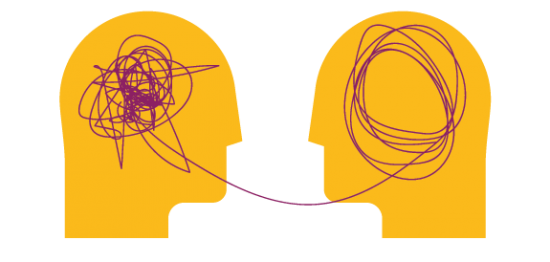Feeling More Stressed Than Ever? What Can You Do About It?
College of Behavioral and Social Sciences

Stress is a normal part of human experience and, though we are experiencing larger doses than usual during pandemic times, we can harness the power of effective coping to manage stress and achieve goals.
Cultivate awareness. Emotions guide our decision-making. Experiential willingness, a concept from Acceptance and Commitment Therapy, requires experiencing our feelings without judgment, avoidance, or being consumed. Unwillingness may result in unhelpful attempts to control emotion (avoiding responsibilities) or rid ourselves of emotion (using substances) at the risk of abandoning meaningful goals. Remember, emotions signal something important is happening — listen to them.
Recognize signs. Make a list of personal vulnerabilities (things that make you prone to stress, like poor sleep or skipping meals) and personal stress signals (like muscle tension or procrastination). Then, try to anticipate stress and proactively cope, rather than waiting to react.
Make decisions. Borrowing from Dialectical Behavior Therapy, we can cope with stress in several ways. First, if change is possible, we can make it happen. Based on your assessment of personal vulnerabilities and stress signals, for example, you may adjust your sleep, exercise, or eating routines. Well-worn habits are challenging to break, and effective skills take patience to develop. Stay steadfast and make incremental changes to ensure success. Second, if change is not possible, we can cultivate acceptance. While you may not be able to change a situation, you can change your attitude toward it. Shift overly negative perspectives (“This is too hard, I can’t do it.”) to more balanced ones (“I may be overwhelmed, yet I can still do what matters”). Lastly, we can choose to do nothing, continue unhelpful habits, and stay stuck in stress. This may seem the easiest choice, but the long-term gains are few. Developing new coping takes time and is well worth the effort.
— Jessica Brooks, Ph.D., LP, Associate Professor, Department of Psychology
